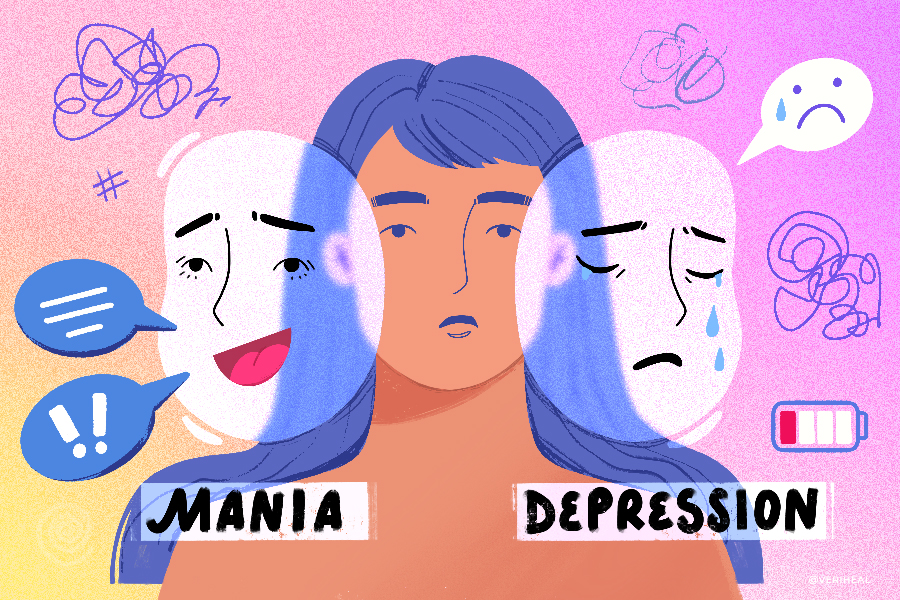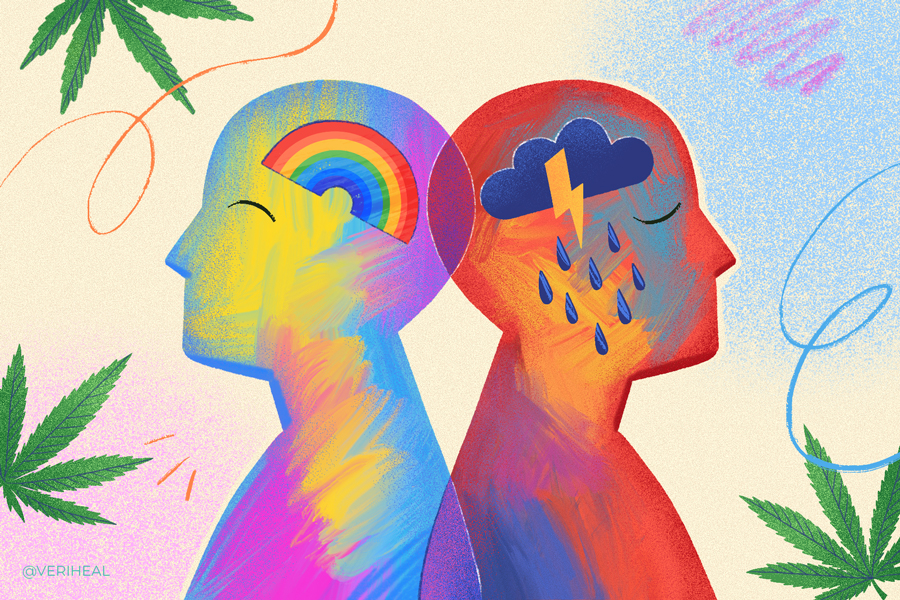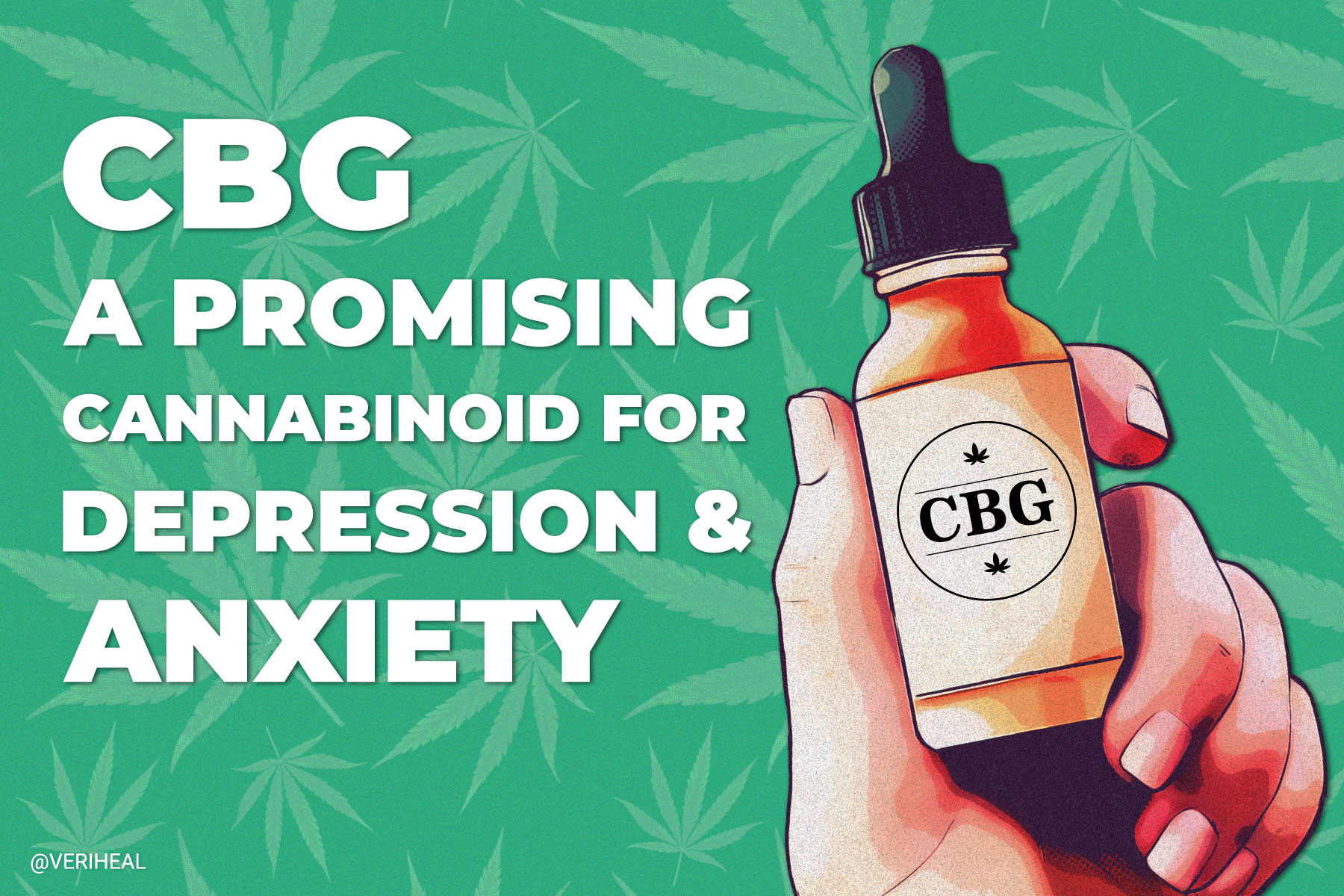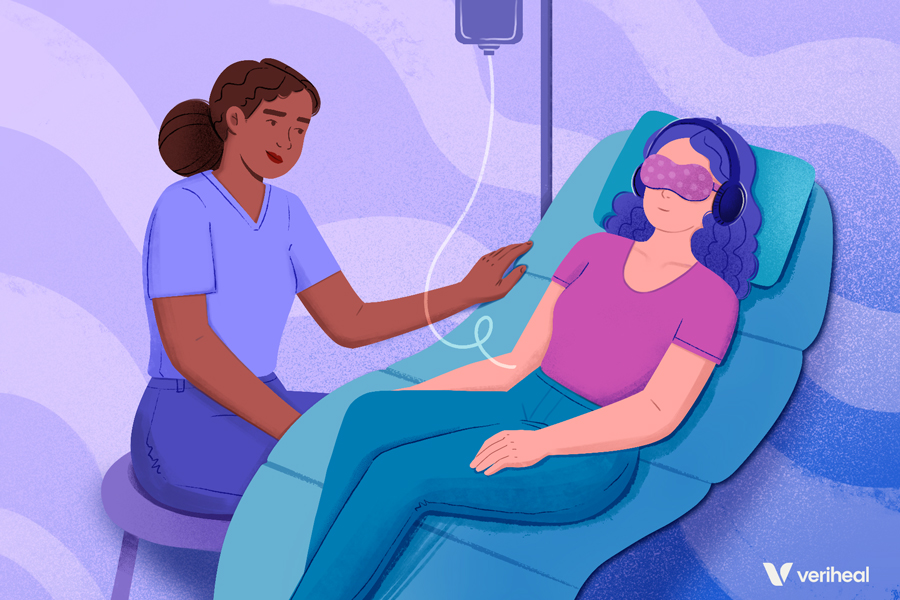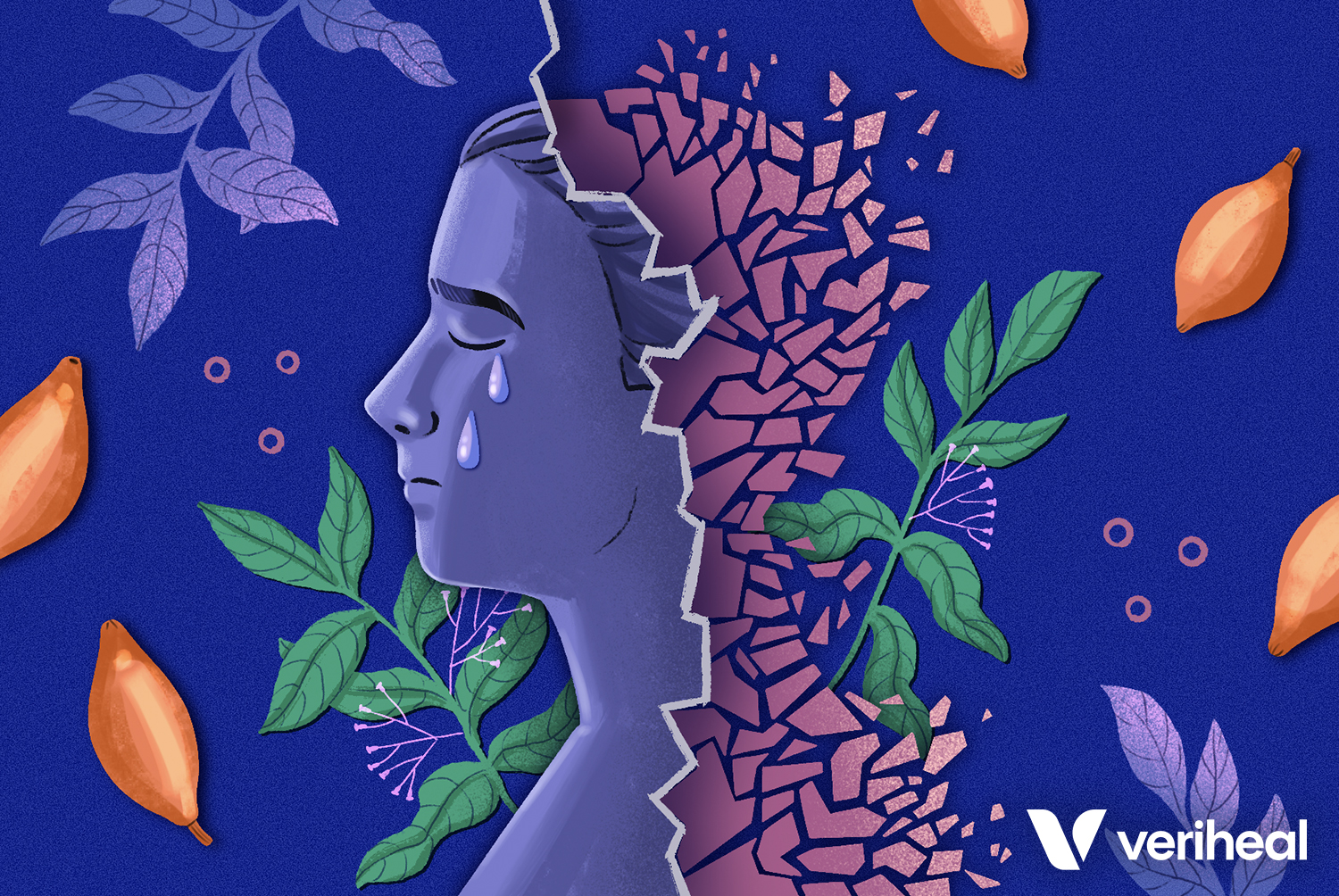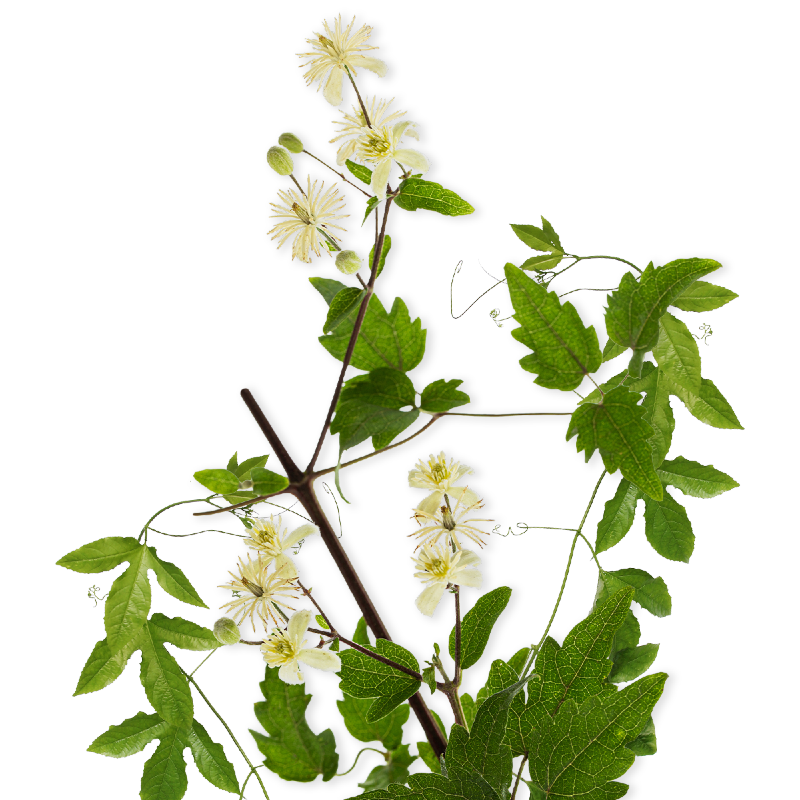Cannabis and CBD for Bipolar Disorder
- Are Cannabinoids a Good Treatment Option for Bipolar Disorder?
- Can Medical Cannabis Worsen Bipolar Disorder?
- What Cannabis Preparations Are Suitable for Bipolar Disorder?
- Ongoing Debate: Cannabis For Bipolar Disorder?
- What Are the Types of Bipolar Disorder?
- Bipolar Disorder: Causes and Complications
- Talking to Your Doctor About Bipolar Disorder Diagnosis and Treatment
Are Cannabinoids a Good Treatment Option for Bipolar Disorder?
There is plenty of evidence from diagnosed bipolar patients suggesting that cannabis use may mitigate the symptoms of this mental illness, including attention and memory. On the other hand, research studies indicate that cannabis may increase the severity and length of manic or depressive episodes. (22).
Many researchers suggest that there are potential positive benefits for patients with bipolar disorder through using cannabidiol (CBD). A 2021 piece published in The Canadian Journal of Psychiatry calls for more research regarding the use of CBD for depression and depressive episodes in bipolar disorder (4). There was a study that set out to evaluate the effects of CBD only for use in bipolar patients as an adjunct therapy, but unfortunately, it was terminated.
CBD may be beneficial to bipolar patients based on biological rationale as well as the benefits of CBD in anxiety, depression, psychosis, epilepsy, and mood disorders (4, 20).
Research has shown that the effects of cannabis, and CBD in particular, have shown positive results in animal studies investigating chronic stress and depression. The effect of CBD on these mood symptoms has been shown to be similar to the antidepressants fluoxetine and imipramine (20).
Additionally, a study focused on animal mania induced by D-amphetamine showed that CBD has neuroprotective effects through increasing brain-derived neurotrophic factor (BDNF) expression in the hippocampus (20). Low BDNF levels have been shown to play a role in some personality disorders.
Can Medical Cannabis Worsen Bipolar Disorder?
Unfortunately, there is a large body of research suggesting that medical marijuana may not be helpful for patients with bipolar disorder. Researchers have found that bipolar patients tend to experience higher rates of developing substance and alcohol use disorders (17).
Some research suggests that cannabis use may be linked to an early onset of bipolar disorder and suicide attempts in some patients (16). In the studies included in this review, between 3.6% to 42% of patients with bipolar disorder had attempted suicide. It is important to note that though there is a correlation between suicide attempts and cannabis or substance abuse, researchers do not know if cannabis triggers these suicide attempts in bipolar patients.
A different study published in 2015 discovered that people with bipolar disorder who consumed cannabis were less likely to go into remission for their condition than patients who do not use cannabis (15). Remission in this case is considered a significant reduction or absence of manic and depressive episodes. Stretching over 24 months, the prospective observational study included 234 patients with bipolar I disorder and bipolar-type schizoaffective disorder, which is considered a mood disorder. Participants were classified as either regular cannabis users (3+ times weekly) or non-consumers (15). Patients who took their prescribed psychiatric medications as directed experienced greater reduction rates of manic and depressive episodes compared to patients who smoked tobacco or used cannabis (15).
The studies discussed above show that there are potential and real risks for bipolar patients who do decide to use cannabis. Though bipolar disorder is associated with greater risks in symptom severity and suicide risk, it is important to speak with your doctor about using medical cannabis.
It is also essential to conduct your own research regarding medical cannabis use. The effects of marijuana in small doses can be useful for patients with certain psychiatric conditions such as anxiety, depression, and some mood disorders.
What Cannabis Preparations Are Suitable for Bipolar Disorder?
Several forms of medical marijuana are available for purchase through dispensaries. These include cannabis flower, pills, oils, tinctures, and edibles.
Unfortunately, the research regarding the use of Δ9-tetrahydrocannabinol (THC) or CBD found in cannabis is not at a stage where it can be safely recommended to patients with bipolar disorder. It is possible that it may make bipolar symptoms worse in some patients. Be sure to talk to your doctor before using medical cannabis to help symptoms of bipolar disorder.
Ongoing Debate: Cannabis for Bipolar Disorder?
Often diagnosed during the adolescent years or early adulthood, bipolar disorder may negatively affect a person’s ability to conduct normal day-to-day tasks, as well as hamper their energy and activity levels. Mood swings are common among bipolar patients, and while the symptoms may vary as time progresses, the disorder usually requires lifelong treatment (6).
People with bipolar disorder may experience manic episodes of elation for short periods, before slipping into depressive episodes where they feel hopeless, delusional, sad, and antisocial. The extremity of fluctuations can cause delusions and make it difficult to lead a normal life. The use of cannabis may aggravate these episodes, and some consider the negative effects to outweigh the positive effects.
Cannabis is one of the most commonly abused drugs among bipolar people and is frequently used by those with mental health conditions (21). Despite the negative anecdotal evidence associated with this green plant, some research suggests that it could actually benefit the mind.
What Are The Types of Bipolar Disorder?
There are three different types of bipolar disorder, with each type causing distinct changes in activity levels, energy, and mood. The symptoms of bipolar disorder differ with each type.
Bipolar Type 1
This type of bipolar disorder is characterized by manic episodes that last for a minimum of 7 days (5). Bipolar type 1 patients may also experience manic symptoms that are so severe immediate medical attention is needed.
Episodes of depressive symptoms may also occur for 1-2 weeks, and it is possible to experience both highs and lows during this period of time. “Rapid cycling” is a medical term used to describe bipolar patients who endure four or more episodes of mania or depression within a year.
Bipolar Type 2
This type of bipolar disorder is characterized by a noticeable pattern of depressive episodes and hypomanic episodes (5). Hypomanic episodes are usually less serious than manic episodes in cases of bipolar I disorder.
Cyclothymic Disorder
This type of bipolar disorder is also referred to as cyclothymia and it is the mildest form of bipolar disorder. Patients with cyclothymia disorder will experience recurrent depressive and hypomanic symptoms with low intensity (5).
These symptoms typically do not last long enough or are considered severe enough to qualify as hypomanic or depressive episodes as seen in patients with bipolar types 1 and 2.
Bipolar Disorder: Causes & Complications
There is no specific root cause of bipolar disorder because numerous factors can increase the risk of mental health complications. However, certain adverse life experiences, including child abuse, trauma, sexual assault, and living in a violent environment, may elevate risk.
Additionally, the Centers for Disease Control and Prevention (CDC) notes that biological factors or chemical imbalances in the brain may contribute to bipolar episodes (1). The CDC also attributes bipolar episodes to feelings of loneliness or isolation. Between 20-60% of people with bipolar disorder attempt suicide at least once (10). Some common complications of bipolar include maintaining proper relationships, friendships, and social life. Bipolar patients may struggle to seek out work, maintain employment, and carry out job-related duties to a satisfactory standard.
Talking to Your Doctor About Bipolar Disorder Diagnosis and Treatment
To understand whether or not your mood swings are directly related to bipolar disorder, your doctor will conduct a thorough physical and mental evaluation. The physical examination will give the doctor a chance to identify any underlying medical problems that could be amplifying your symptoms.
Next, a psychiatric assessment will take place. This stage of the diagnosis process may be carried out by a psychiatrist (depending on which doctor you visit about bipolar disorder treatment). Some activities you can expect to partake in at a psychiatric appointment include mood charting, and psychological self-assessments or questionnaires.
Collectively, these things will help the mental health professional to better understand your behavior patterns, feelings, and thoughts. It’s likely that your psychiatrist may compare your symptoms with the American Psychiatric Association’s criteria for bipolar and related disorders. This information is featured in the Diagnostic and Statistical Manual of Mental Disorders (DSM-5) (7).
Once a bipolar disorder diagnosis has been made, you may be prescribed mood stabilizers like lithium (Lithobid), valproic acid (Depakene), divalproex sodium (Depakote), and lamotrigine (Lamictal). Antidepressants, antipsychotics, anti-anxiety medications, and benzodiazepines are some short-term options for treating bipolar symptoms.
Antipsychotics like olanzapine (Zyprexa), quetiapine (Seroquel), aripiprazole (Abilify), or asenapine (Saphris) may also provide some level of respite from the symptoms. Depending on the severity of your symptoms, antipsychotic medications may be prescribed with a mood stabilizer.
Make sure to talk to your doctor before using medical cannabis alongside these meds. Cannabis can interact with mood stabilizers, antidepressants, antipsychotics, and other prescription medications in different ways and cause undesirable side effects. Avoid self-medication, and use caution before adding medical marijuana use to your treatment regimen.
Note: Veriheal does not intend to give this as professional medical advice. Do not attempt to self-diagnose, or prescribe treatment based on the information provided on this page. Always consult a physician before making any decision on the treatment of a medical condition.
1. About Mental Health. (2023, April 28). https://www.cdc.gov/mentalhealth/learn/index.htm
2. Agrawal, A., Nurnberger, J. I., & Lynskey, M. T. (2011). Cannabis involvement in individuals with bipolar disorder. Psychiatry Research, 185(3), 459–461. https://doi.org/10.1016/j.psychres.2010.07.007
3. Babalonis, S., Haney, M., Malcolm, R. J., Lofwall, M. R., Votaw, V. R., Sparenborg, S., & Walsh, S. L. (2017). Oral cannabidiol does not produce a signal for abuse liability in frequent marijuana smokers. Drug and Alcohol Dependence, 172, 9–13. https://doi.org/10.1016/j.drugalcdep.2016.11.030
4. Bartoli, F., Bachi, B., Calabrese, A., Moretti, F., Crocamo, C., & Carrà, G. (2021). Cannabidiol for Mood Disorders: A Call for More Research. The Canadian Journal of Psychiatry, 66(2), 182–183. https://doi.org/10.1177/0706743720926798
5. Bipolar Disorder. (n.d.). National Institute of Mental Health (NIMH). Retrieved May 10, 2023, from https://www.nimh.nih.gov/health/statistics/bipolar-disorder
6. Bipolar Disorder. (2023, February 7). https://www.samhsa.gov/mental-health/bipolar
7. Bipolar disorder—Diagnosis and treatment—Mayo Clinic. (n.d.). Retrieved May 10, 2023, from https://www.mayoclinic.org/diseases-conditions/bipolar-disorder/diagnosis-treatment/drc-20355961
8. Cannabis use and mania symptoms: A systematic review and meta-analysis—ScienceDirect. (n.d.). Retrieved May 10, 2023, from https://www.sciencedirect.com/science/article/abs/pii/S0165032714005709
9. Comorbidity and Coaggregation of Major Depressive Disorder and Bipolar Disorder and Cannabis Use Disorder in a Controlled Family Study | Bipolar and Related Disorders | JAMA Psychiatry | JAMA Network. (n.d.). Retrieved May 10, 2023, from https://jamanetwork.com/journals/jamapsychiatry/article-abstract/2793123
10. Dome, P., Rihmer, Z., & Gonda, X. (2019). Suicide Risk in Bipolar Disorder: A Brief Review. Medicina, 55(8), 403. https://doi.org/10.3390/medicina55080403
11. Evidence for Use of Cannabinoids in Mood Disorders, Anxiety Disorders, and PTSD: A Systematic Review | Psychiatric Services. (n.d.). Retrieved May 10, 2023, from https://ps.psychiatryonline.org/doi/full/10.1176/appi.ps.202000189
12. Fusar-Poli, P., Allen, P., Bhattacharyya, S., Crippa, J. A., Mechelli, A., Borgwardt, S., Martin-Santos, R., Seal, M. L., O’Carrol, C., Atakan, Z., Zuardi, A. W., & McGuire, P. (2010). Modulation of effective connectivity during emotional processing by Delta 9-tetrahydrocannabinol and cannabidiol. The International Journal of Neuropsychopharmacology, 13(4), 421–432. https://doi.org/10.1017/S1461145709990617
13. Graczyk, M., Łukowicz, M., & Dzierzanowski, T. (2021). Prospects for the Use of Cannabinoids in Psychiatric Disorders. Frontiers in Psychiatry, 12. https://www.frontiersin.org/articles/10.3389/fpsyt.2021.620073
14. Jarvis, K., DelBello, M. P., Mills, N., Elman, I., Strakowski, S. M., & Adler, C. M. (2008). Neuroanatomic Comparison of Bipolar Adolescents With and Without Cannabis Use Disorders. Journal of Child and Adolescent Psychopharmacology, 18(6), 557–563. https://doi.org/10.1089/cap.2008.033
15. Kim, S.-W., Dodd, S., Berk, L., Kulkarni, J., de Castella, A., Fitzgerald, P. B., Kim, J.-M., Yoon, J.-S., & Berk, M. (2015). Impact of Cannabis Use on Long-Term Remission in Bipolar I and Schizoaffective Disorder. Psychiatry Investigation, 12(3), 349–355. https://doi.org/10.4306/pi.2015.12.3.349
16. Leite, R. T. P., Nogueira, S. de O., do Nascimento, J. P. R., de Lima, L. S., da Nóbrega, T. B., Virgínio, M. da S., Moreno, L. M. da C., Sampaio, B. H. B., & Souza, F. G. de M. e. (2015). The Use of Cannabis as a Predictor of Early Onset of Bipolar Disorder and Suicide Attempts. Neural Plasticity, 2015, 434127. https://doi.org/10.1155/2015/434127
17. Lev-Ran, S., Le Foll, B., McKenzie, K., George, T. P., & Rehm, J. (2013). Bipolar disorder and co-occurring cannabis use disorders: Characteristics, co-morbidities and clinical correlates. Psychiatry Research, 209(3), 459–465. https://doi.org/10.1016/j.psychres.2012.12.014
18. Masataka, N. (2019). Anxiolytic Effects of Repeated Cannabidiol Treatment in Teenagers With Social Anxiety Disorders. Frontiers in Psychology, 10, 2466. https://doi.org/10.3389/fpsyg.2019.02466
19. O’Donnell, L., Himle, J. A., Ryan, K., Grogan-Kaylor, A., McInnis, M. G., Weintraub, J., Kelly, M., & Deldin, P. (2017). Social Aspects of the Workplace Among Individuals With Bipolar Disorder. Journal of the Society for Social Work and Research, 8(3), 379–398. https://doi.org/10.1086/693163
20. Pinto, J. V., Saraf, G., Frysch, C., Vigo, D., Keramatian, K., Chakrabarty, T., Lam, R. W., Kauer-Sant’Anna, M., & Yatham, L. N. (2020). Cannabidiol as a Treatment for Mood Disorders: A Systematic Review: Le cannabidiol comme traitement des troubles de l’humeur: une revue systématique. Canadian Journal of Psychiatry. Revue Canadienne de Psychiatrie, 65(4), 213–227. https://doi.org/10.1177/0706743719895195
21. Saddichha, S., Sur, S., Sinha, B. N. P., & Khess, C. R. J. (2010). How is substance use linked to psychosis? A study of the course and patterns of substance dependence in psychosis. Substance Abuse, 31(1), 58–67. https://doi.org/10.1080/08897070903442699
22. Stix, G. (n.d.). Many People with Bipolar Disorder Use Cannabis. It May Sometimes Help. Scientific American. Retrieved May 10, 2023, from https://www.scientificamerican.com/article/people-with-bipolar-disorder-often-use-cannabis-it-may-sometimes-help/
23. Taub, S., Feingold, D., Rehm, J., & Lev-Ran, S. (2018). Patterns of cannabis use and clinical correlates among individuals with Major Depressive Disorder and Bipolar Disorder. Comprehensive Psychiatry, 80, 89–96. https://doi.org/10.1016/j.comppsych.2017.09.004

